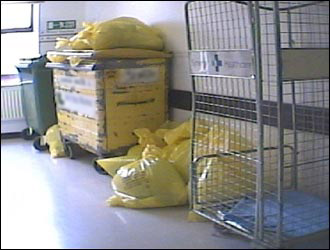Hospital infections on a rise in Canada
 Hospital acquired infections are on the rise and Canadian hospitals infection programs continue to "fall short".
Hospital acquired infections are on the rise and Canadian hospitals infection programs continue to "fall short".
A survey in this regard was conducted in 2006 by researchers from Queen's University in Kingston, Ontario, funded by the Public Health Agency of Canada.
It was found that cases of infection caused by Methicillin-resistant Staphylococcus aureus (MRSA), a superbug resistant to antibiotics has increased two fold between 199 -
2005.
Vancomycin-resistant enterococcus (VRE) has been discovered in 77 % more hospitals, in 2005 than in 1999.
"We have more people in infection control and that is good," Zoutman said. "But that has to translate into practices and surveillance activities."
Lead author Dr. Dick Zoutman, head of infection control at Kingston General Hospital estimates that more than 250,000 patients will fall prey to hospital-acquired infections each year and 8,000 will die.
The doctor also feels that importance of hand-washing should be reinforced as it prevents the spread of illness. It was noticed that health-care providers wash their hands only 35 to 40 per cent of the time before seeing a patient.